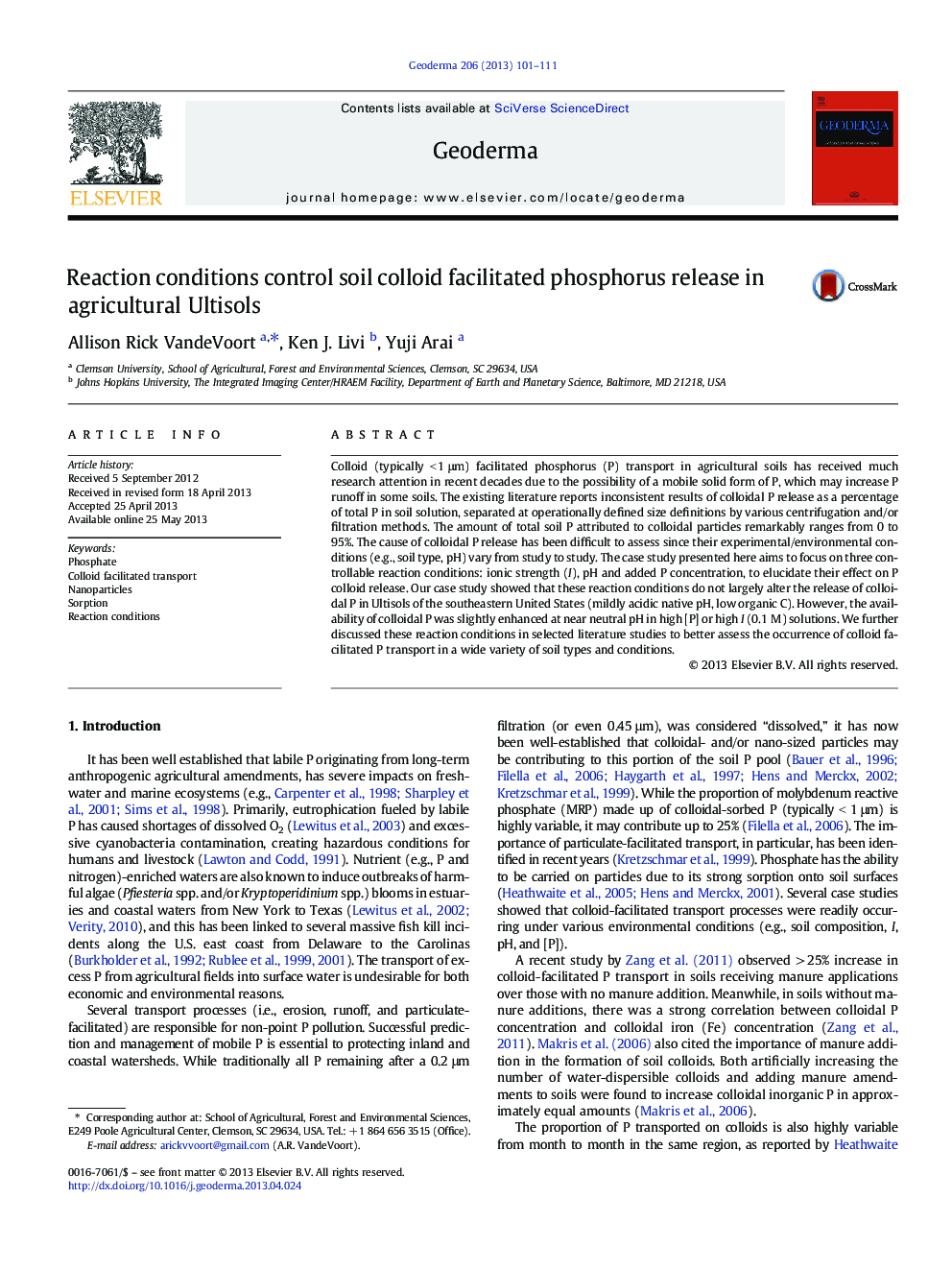| Article ID | Journal | Published Year | Pages | File Type |
|---|---|---|---|---|
| 4573479 | Geoderma | 2013 | 11 Pages |
•Acidic, low organic C soils, do not promote P transport via mobile soil colloids.•Experimental conditions affect the amount of phosphorus carried on soil colloids.•Increasing ionic strength promotes soil nanoparticle coagulation into colloids.•The coagulation properties of soil constituents are mineral-specific.
Colloid (typically < 1 μm) facilitated phosphorus (P) transport in agricultural soils has received much research attention in recent decades due to the possibility of a mobile solid form of P, which may increase P runoff in some soils. The existing literature reports inconsistent results of colloidal P release as a percentage of total P in soil solution, separated at operationally defined size definitions by various centrifugation and/or filtration methods. The amount of total soil P attributed to colloidal particles remarkably ranges from 0 to 95%. The cause of colloidal P release has been difficult to assess since their experimental/environmental conditions (e.g., soil type, pH) vary from study to study. The case study presented here aims to focus on three controllable reaction conditions: ionic strength (I), pH and added P concentration, to elucidate their effect on P colloid release. Our case study showed that these reaction conditions do not largely alter the release of colloidal P in Ultisols of the southeastern United States (mildly acidic native pH, low organic C). However, the availability of colloidal P was slightly enhanced at near neutral pH in high [P] or high I (0.1 M) solutions. We further discussed these reaction conditions in selected literature studies to better assess the occurrence of colloid facilitated P transport in a wide variety of soil types and conditions.
